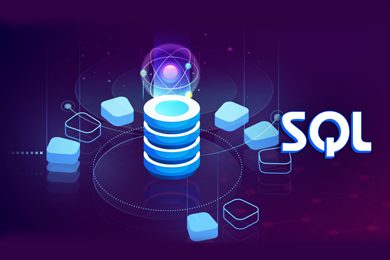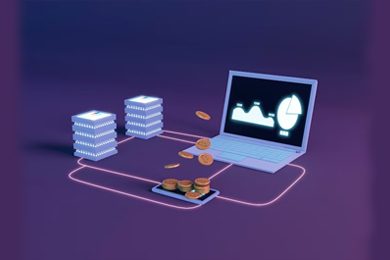This plan includes
- Limited free courses access
- Play & Pause Course Videos
- Video Recorded Lectures
- Learn on Mobile/PC/Tablet
- Quizzes and Real Projects
- Lifetime Course Certificate
- Email & Chat Support
What you'll learn?
- Master the Contents Required to Pass Oracle SQL Exam 1Z0-071
- The Full Track of Oracle Database SQL 18c
- Have the Ability to Solve any Oracle SQL Problem
- Downloading and Installing Oracle Database 18c Express Edition
- Installing Oracle SQL Developer
- Connecting to the Database using Oracle SQL Developer and SQLPlus
- Retrieving Data Using SELECT statement
- Restricting and Sorting Data Using WHERE and ORDER BY Clause
- Using Single-Row Functions to Customize Output
- Reporting Aggregated Data Using the Group Functions
- Displaying Data From Multiple Tables Using Joins
- Using Subqueries Part I
- Using Set Operators
- Manipulating Data Using DML Statements Part I
- Data Definition Language (DDL) / Creating Tables
- Data Dictionary Views
- Data Definition Language (DDL) / Creating Views
- Data Definition Language (DDL) / Creating Sequences/ Creating Synonyms/ Creating Indexes
- Managing Schema Objects
- Using Subqueries Part II
- Manipulating Data By Using Subqueries
- Controlling User Access
- Manipulating Data Using DML Statements Part II
Course Overview
Welcome to the Complete Oracle SQL Bootcamp 2021.
If you want to get ready and become a professional Oracle SQL Developer and Prepare for an Oracle SQL Certification Exam 1Z0-071: Oracle Certified Associate (OCA), then this course is the best for you.
Do you want to get a better job?
Are you bored with watching a lot of stuff, but could not learn anything?
Are you looking for a really professional course?
Then this is best Oracle SQL course you are looking for.
You have come to the right place!
If you are new to Oracle SQL, no problem! You can easily learn with all the details of SQL. If you already know SQL and want to improve you skills, this course explains all the details including all of the subjects.
Get this course, and go get a better job!
In this course, all the subjects are explained in a professional way.
All practices and solutions are in the lessons. you can pause the video and complete the practice before resuming to watch the solution. Make sure you solve the practice on your own before moving on to the solution!
Topics covered in this course:
-
Downloading and installing Oracle database express 18c in details
-
Downloading and installing Oracle SQL Developer
-
Connecting to Oracle Database using SQL Developer and SQLPlus
-
Retrieving data using the select statement
-
Restricting / Filtering Data
-
Sorting Data
-
Using Substitution Variables
-
Using Single-Row Functions to Customize Output
-
Reporting Aggregated Data Using the Group Functions
-
Displaying Data from multiple tables using joins
-
Using Subqueries to Solve Queries Part I
-
Using the Set Operators
-
Manipulating tables using DML Statements ( Insert, Update, Delete )
-
Using Data Definition Language / Creating tables
-
Managing objects with data dictionary views
-
Creating Views in details
-
Creating sequences, synonyms, and indexes
-
Managing Schema Objects
-
Retrieving Data By Using Subqueries Part II
-
Manipulating Data By Using Subqueries
-
Controlling User Access in details
-
Manipulating Data using DML Part II
-
Managing Data in Different Time Zones
Pre-requisites
- No programming experience is required to master the contents of this course
Target Audience
- Students willing to get into Oracle SQL or software development career
- Students willing to Master Oracle SQL and get a job as a well paid Oracle SQL Developer
- Students willing to work hard in mastering the SQL language
- Students who wants to be expert in oracle database SQL 18c and interested in passing Oracle SQL 1Z0-071 exam!
Curriculum 239 Lectures 07:40:26
Section 1 : Introduction
- Lecture 2 :
- Data and Database Overview
- Lecture 3 :
- DBMS and SQL Overview
- Lecture 4 :
- Downloading Oracle Database Express
- Lecture 5 :
- Installing Oracle Database Express
- Lecture 6 :
- Downloading Oracle SQL Developer
- Lecture 7 :
- Installing Oracle SQL Developer
- Lecture 8 :
- Chapter 1 Quiz 1
- Lecture 9 :
- Connecting to Oracle Database using Oracle SQL Developer
- Lecture 10 :
- View Table Structure and Data Practice
- Lecture 11 :
- Connecting to Oracle Database using Oracle SQLPlus Practice
Section 2 : Using SELECT Statement to Retrieve Data
- Lecture 1 :
- Writing Basic SELECT Statement
- Lecture 2 :
- Writing Basic SELECT Statement Practice
- Lecture 3 :
- If you cannot prepare Oracle DB express on your PC!!!
- Lecture 4 :
- Arithmetic Operations and Null Values
- Lecture 5 :
- Arithmetic Operations and Null Values Practice
- Lecture 6 :
- Chapter 2 Quiz 1
- Lecture 7 :
- Using Column Alias
- Lecture 8 :
- Using Column Alias Practice
- Lecture 9 :
- Concatenation Operator, Literal Character String and DISTINCT keyword
- Lecture 10 :
- Describe Command
- Lecture 11 :
- Concatenation Operator, Literal Character String, Distinct and Describe Practice
- Lecture 12 :
- Chapter 2 Quiz 2
- Lecture 13 :
- All Chapter Practices
Section 3 : Filtering Data
- Lecture 1 :
- Filtering Data
- Lecture 2 :
- Filtering Data Practice
- Lecture 3 :
- Comparison Operators
- Lecture 4 :
- Comparison Operators Practice
- Lecture 5 :
- Logical Operators
- Lecture 6 :
- Logical Operators Practice
- Lecture 7 :
- Chapter 3 Quiz 1
- Lecture 8 :
- All Chapter Practices
Section 4 : Sorting Data
- Lecture 1 :
- Sorting Data
- Lecture 2 :
- Sorting Data Practice
- Lecture 3 :
- Chapter 4 Quiz 1
- Lecture 4 :
- Row Limiting Clause
- Lecture 5 :
- Row Limiting Clause Practice
- Lecture 6 :
- Chapter 4 Quiz 2
- Lecture 7 :
- Substitution Variables
- Lecture 8 :
- Difference between & and && Practice
- Lecture 9 :
- Define and Verify Commands
- Lecture 10 :
- Substitution Variables and Verify Practice
- Lecture 11 :
- Chapter 4 Quiz 3
- Lecture 12 :
- All Chapter Practices
Section 5 : Single Row Functions
- Lecture 1 :
- SQL Functions
- Lecture 2 :
- Character Functions – Case Conversion Functions
- Lecture 3 :
- Case Conversion Functions Practice
- Lecture 4 :
- Character Functions – Manipulation Functions
- Lecture 5 :
- Character Manipulation Functions Practice
- Lecture 6 :
- Numeric Functions
- Lecture 7 :
- Numeric Functions Practice
- Lecture 8 :
- Date Functions
- Lecture 9 :
- Date Functions Practice
- Lecture 10 :
- All Chapter Practices
- Lecture 11 :
- Chapter 5 Quiz 1
Section 6 : Conversion and General Functions
- Lecture 1 :
- Data Type Conversion
- Lecture 2 :
- Conversion Functions – TO_CHARE
- Lecture 3 :
- TO_CHARE Practice
- Lecture 4 :
- Conversion Functions - TO_NUMBER and TO_DATE
- Lecture 5 :
- TO_NUMBER and TO_DATE Practice
- Lecture 6 :
- Chapter 6 Quiz 1
- Lecture 7 :
- General Functions - NVL, NVL2, NULLIF and COALESCE
- Lecture 8 :
- NVL and NVL2 Practice
- Lecture 9 :
- Chapter 6 Quiz 2
- Lecture 10 :
- General Functions - CASE and DECODE
- Lecture 11 :
- CASE and DECODE Practice
- Lecture 12 :
- All Chapter Practices
Section 7 : Group Functions
- Lecture 1 :
- Using Group Functions
- Lecture 2 :
- Using Group Functions Practice
- Lecture 3 :
- Distinct and Null Values in Group Functions
- Lecture 4 :
- Distinct and Null Values in Group Functions Practice
- Lecture 5 :
- Using the GROUP BY clause
- Lecture 6 :
- Using Group By Clause Pratice
- Lecture 7 :
- Using the HAVING clause
- Lecture 8 :
- Using the HAVING Clause Practice
- Lecture 9 :
- Chapter 7 Quiz 1
- Lecture 10 :
- All Chapter Practices
Section 8 : Joins
- Lecture 1 :
- Join – Overview
- Lecture 2 :
- Inner Join – Natural Join
- Lecture 3 :
- Inner Join - Natural Join Practice
- Lecture 4 :
- Inner Join – Using Clause
- Lecture 5 :
- Inner Join – Using Clause Practice
- Lecture 6 :
- Inner Join – ON Clause
- Lecture 7 :
- Inner Join – ON Clause Practice
- Lecture 8 :
- Chapter 8 Quiz 1
- Lecture 9 :
- Inner Join – Self Join
- Lecture 10 :
- Inner Join – Self Join Practice
- Lecture 11 :
- Non equijoin
- Lecture 12 :
- Outer Join
- Lecture 13 :
- Outer Join Practice
- Lecture 14 :
- Cross (Cartesian) Join
- Lecture 15 :
- Cross Join Practice
- Lecture 16 :
- Chapter 8 Quiz 2
- Lecture 17 :
- All Chapter Practices
Section 9 : Using Subqueries I
- Lecture 1 :
- Using Subqueries
- Lecture 2 :
- Single Row Subquery
- Lecture 3 :
- Single Row Subquery Practice
- Lecture 4 :
- Multi Row Subquery
- Lecture 5 :
- Multi Row Subquery Practice
- Lecture 6 :
- Multi Column Subquery
- Lecture 7 :
- Multi Column Subquery Practice
- Lecture 8 :
- Chapter 9 Quiz 1
- Lecture 9 :
- All Chapter Practices
Section 10 : SET Operators
- Lecture 1 :
- Set Operators - Overview
- Lecture 2 :
- Set Operators – UNION/UNION ALL
- Lecture 3 :
- Union/Union All Practice
- Lecture 4 :
- Set Operators – INTERSECT/MINUS
- Lecture 5 :
- Intersect/Minus Practice
- Lecture 6 :
- Chapter 10 Quiz 1
- Lecture 7 :
- All Chapter Practices
Section 11 : DML - Data Manipulation Language and TCL – Transaction Control Language
- Lecture 1 :
- DML – INSERT Statement
- Lecture 2 :
- DML – UPDATE Statement
- Lecture 3 :
- DML – DELETE Statement
- Lecture 4 :
- TCL – Transaction Control Language
- Lecture 5 :
- DML and TCL Practice
- Lecture 6 :
- Chapter 11 Quiz 1
- Lecture 7 :
- All Chapter Practices
Section 12 : DDL - Data Definition Language
- Lecture 1 :
- DDL – CREATE TABLE Statement
- Lecture 2 :
- Columns Data Types
- Lecture 3 :
- Create Table Practice
- Lecture 4 :
- Table Constraints – NOT NULL and CHECK
- Lecture 5 :
- Not Null and Check Constraints Practice
- Lecture 6 :
- Table Constraints – UNIQUE and PRIMARY
- Lecture 7 :
- Unique and Primary Constraints Practice
- Lecture 8 :
- Table Constraints – FOREIGN KEY
- Lecture 9 :
- Foreign Key Constraints Practice Part I
- Lecture 10 :
- Foreign Key Constraints Practice Part II
- Lecture 11 :
- Chapter 12 Quiz 1
- Lecture 12 :
- CREATE TABLE with Subquery
- Lecture 13 :
- Create Table with Subquery Practice
- Lecture 14 :
- DDL – ALTER TABLE Statement
- Lecture 15 :
- Alter Table Practice
- Lecture 16 :
- DDL – DROP TABLE Statement
- Lecture 17 :
- Drop Table Practice
- Lecture 18 :
- Chapter 12 Quiz 2
- Lecture 19 :
- All Chapter Practices
Section 13 : Data Dictionary Views
- Lecture 1 :
- Data Dictionary – Overview
- Lecture 2 :
- Data Dictionary Views– Objects Information
- Lecture 3 :
- Use USER_OBJECTS and ALL_OBJECTS Practice
- Lecture 4 :
- Data Dictionary Views– Tables Information
- Lecture 5 :
- Use USER_TABLES and ALL_TABLE Practice
- Lecture 6 :
- Data Dictionary Views– Columns Information
- Lecture 7 :
- Use USER_TAB_COLUMNS Practice
- Lecture 8 :
- Data Dictionary Views– Constraints Information
- Lecture 9 :
- Use USER_CONSTRAINTS and USER_CONS_COLUMNS Practice
- Lecture 10 :
- Data Dictionary Views– Comments
- Lecture 11 :
- Use USER_TAB_COMMENTS and USER_COL_COMMENTS Practice
- Lecture 12 :
- Chapter 13 Quiz 1
- Lecture 13 :
- All Chapter Practices
Section 14 : Views
- Lecture 1 :
- Create View / Query View
- Lecture 2 :
- Create View and Query View Practice
- Lecture 3 :
- Views Overview
- Lecture 4 :
- Modify View
- Lecture 5 :
- Modify View Practice
- Lecture 6 :
- DML Operations on a View
- Lecture 7 :
- DML Operations on a View Practice
- Lecture 8 :
- Retrieve VIEW Information / Drop VIEW
- Lecture 9 :
- Retrieve VIEW Information and Drop VIEW Practice
- Lecture 10 :
- Chapter 14 Quiz 1
- Lecture 11 :
- All Chapter Practices
Section 15 : Sequences
- Lecture 1 :
- Create Sequences
- Lecture 2 :
- Create Sequences Practice
- Lecture 3 :
- Using Sequences / Modify Sequences
- Lecture 4 :
- Using Sequences and Modify Sequences Practice
- Lecture 5 :
- View Sequence Information / Drop Sequence
- Lecture 6 :
- View Sequence Information and Drop Sequence Practice
- Lecture 7 :
- Chapter 15 Quiz 1
- Lecture 8 :
- All Chapter Practices
Section 16 : Synonyms
- Lecture 1 :
- Create Synonym
- Lecture 2 :
- Create Synonym Practice
- Lecture 3 :
- View Synonym Information / Drop Synonym
- Lecture 4 :
- View Synonym Information and Drop Synonym Practice
- Lecture 5 :
- All Chapter Practices
Section 17 : Indexes
- Lecture 1 :
- Create Index
- Lecture 2 :
- Create Index Practice
- Lecture 3 :
- View Index Information / Drop Index
- Lecture 4 :
- VIew Index Information and Drop Index Practice
- Lecture 5 :
- Chapter 17 Quiz 1
- Lecture 6 :
- All Chapter Practices
Section 18 : Managing Schema Objects
- Lecture 1 :
- Managing Constraints
- Lecture 2 :
- Managing Constraints Practice
- Lecture 3 :
- Chapter 18 Quiz 1
- Lecture 4 :
- Temporary Table
- Lecture 5 :
- Temporary Table Practice
- Lecture 6 :
- External Table
- Lecture 7 :
- External Table Practice
- Lecture 8 :
- Chapter 18 Quiz 2
- Lecture 9 :
- All Chapter Practices
Section 19 : Using Subqueries II
- Lecture 1 :
- Multicolumn Subquery
- Lecture 2 :
- Multicolumn Subquery Practice
- Lecture 3 :
- Correlated Subquery
- Lecture 4 :
- Correlated Subquery Practice
- Lecture 5 :
- Chapter 19 Quiz 1
- Lecture 6 :
- EXISTS and NOT EXISTS Operators
- Lecture 7 :
- EXISTS and NOT EXISTS Operators Practice
- Lecture 8 :
- Chapter 19 Quiz 2
- Lecture 9 :
- WITH Clause
- Lecture 10 :
- WITH Clause Practice
- Lecture 11 :
- Chapter 19 Quiz 3
- Lecture 12 :
- All Chapter Practices
Section 20 : Manipulating Data Using Subqueries
- Lecture 1 :
- Correlated Update
- Lecture 2 :
- Correlated Update Practice
- Lecture 3 :
- Correlated Delete
- Lecture 4 :
- Inline View
- Lecture 5 :
- Chapter 20 Quiz 1
- Lecture 6 :
- All Chapter Practices
Section 21 : Controlling User Access
- Lecture 1 :
- Privileges Overview
- Lecture 2 :
- System Privileges
- Lecture 3 :
- System Privileges Practice
- Lecture 4 :
- Object Privileges
- Lecture 5 :
- Object Privileges Practice
- Lecture 6 :
- Chapter 21 Quiz 1
- Lecture 7 :
- Roles
- Lecture 8 :
- Roles Practice
- Lecture 9 :
- Revoke Privileges
- Lecture 10 :
- Revoke Privileges Practice
- Lecture 11 :
- All Chapter Practices
Section 22 : Manipulating Data – DML II
- Lecture 1 :
- MERGE Statement
- Lecture 2 :
- Merge Statement Practice
- Lecture 3 :
- Multitable Insert - Overview
- Lecture 4 :
- Multitable Insert - Unconditional INSERT ALL
- Lecture 5 :
- Unconditional Insert All Practice
- Lecture 6 :
- Multitable Insert - Conditional INSERT ALL
- Lecture 7 :
- Multitable Insert - Conditional INSERT FIRST
- Lecture 8 :
- Conditional Insert First Practice
- Lecture 9 :
- Multitable Insert - Pivoting INSERT
- Lecture 10 :
- Chapter 22 Quiz 1
- Lecture 11 :
- FLASHBACK Table Statement/Drop
- Lecture 12 :
- FLASHBACK Query
- Lecture 13 :
- Flashback Practice
- Lecture 14 :
- All Chapter Practices
Section 23 : Managing Data in Different Time Zones
- Lecture 1 :
- Time Zone Overview
- Lecture 2 :
- Time Zone Practice
- Lecture 3 :
- INTERVAL Data Types
- Lecture 4 :
- Interval Data Types Practice
- Lecture 5 :
- Other Time Functions
- Lecture 6 :
- Other Time Functions Practice
- Lecture 7 :
- Chapter 23 Quiz 1
- Lecture 8 :
- All Chapter Practices
Our learners work at
Frequently Asked Questions
How do i access the course after purchase?
It's simple. When you sign up, you'll immediately have unlimited viewing of thousands of expert courses, paths to guide your learning, tools to measure your skills and hands-on resources like exercise files. There’s no limit on what you can learn and you can cancel at any time.Are these video based online self-learning courses?
Yes. All of the courses comes with online video based lectures created by certified instructors. Instructors have crafted these courses with a blend of high quality interactive videos, lectures, quizzes & real world projects to give you an indepth knowledge about the topic.Can i play & pause the course as per my convenience?
Yes absolutely & thats one of the advantage of self-paced courses. You can anytime pause or resume the course & come back & forth from one lecture to another lecture, play the videos mulitple times & so on.How do i contact the instructor for any doubts or questions?
Most of these courses have general questions & answers already covered within the course lectures. However, if you need any further help from the instructor, you can use the inbuilt Chat with Instructor option to send a message to an instructor & they will reply you within 24 hours. You can ask as many questions as you want.Do i need a pc to access the course or can i do it on mobile & tablet as well?
Brilliant question? Isn't it? You can access the courses on any device like PC, Mobile, Tablet & even on a smart tv. For mobile & a tablet you can download the Learnfly android or an iOS app. If mobile app is not available in your country, you can access the course directly by visting our website, its fully mobile friendly.Do i get any certificate for the courses?
Yes. Once you complete any course on our platform along with provided assessments by the instructor, you will be eligble to get certificate of course completion.
For how long can i access my course on the platform?
You require an active subscription to access courses on our platform. If your subscription is active, you can access any course on our platform with no restrictions.Is there any free trial?
Currently, we do not offer any free trial.Can i cancel anytime?
Yes, you can cancel your subscription at any time. Your subscription will auto-renew until you cancel, but why would you want to?



 Tech & IT
Tech & IT
 Business
Business
 Coding & Developer
Coding & Developer
 Finance & Accounting
Finance & Accounting
 Academics
Academics
 Office Applications
Office Applications
 Art & Design
Art & Design
 Marketing
Marketing
 Health & Wellness
Health & Wellness
 Sounds & Music
Sounds & Music
 Lifestyle
Lifestyle
 Photography
Photography
















